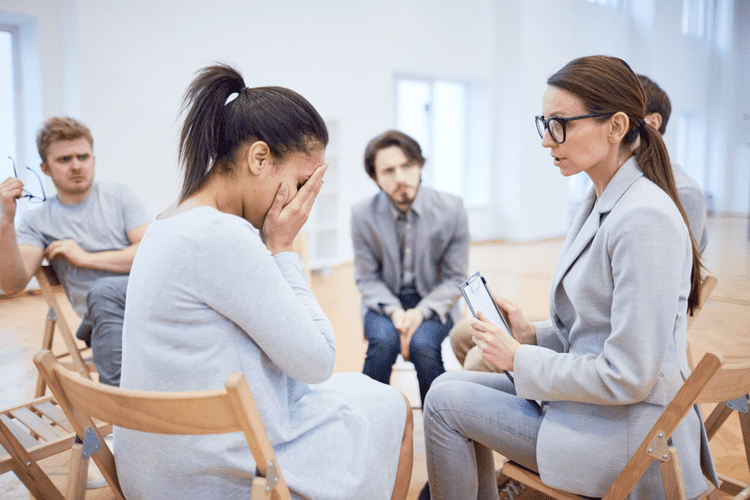Content
Some people in recovery may try tostart drinking againto improve their sleep. However, the alcohol will continue to damage their sleep cycles, and the problem will not get better. Reset rhythms.Is a loved one falling asleep too early and then unable to sleep through the night? Some older adults may actually benefit from a little bright light exposure in the evening—look for full-spectrum bulbs, which mimic natural daylight. Speak with a sleep specialist to initiate a plan using light, since exposure at the wrong times can worsen things.
Remembering Paul 'PC' Cardone, legendary Arizona guitar player - The Arizona Republic
Remembering Paul 'PC' Cardone, legendary Arizona guitar player.
Posted: Sat, 03 Dec 2022 13:01:02 GMT [source]
Cognitive behavioral therapy for insomnia (CBT-I) can help you retrain your thoughts to diminish the speeding of your brain, he says. A specially trained CBT-I therapist can help, but there are also apps available that teach you these important skills. “Don’t just use them at 3 a.m.; practice with these apps during the day,” Doghramji says. If you do need to use them at night, make sure to set your smartphone to night setting so the light doesn’t make you even more awake. Everyone metabolizes it at a different rate, so you may be surprised what time of day you should be cutting off caffeine. “If you’re having trouble falling asleep, eliminate it after lunch,” she says.
How many hours before bed should you stop drinking?
For example, in the general population, insomnia in the previous 6 months affected 18 percent of alcoholic people, but only 10 percent of nonalcoholic people (Brower et al. 2000). Even one drink can disrupt your sleep cycle, which means you might notice that you feel more deeply rested as soon as the first night of your break from alcohol. Many people believe that alcohol can help you relax and fall asleep. This is because alcohol’s slow-down effect on your brain can lead to drowsiness helping you to doze off more easily. But the quality of your sleep will diminish throughout the night as your body processes the alcohol, leading to tossing and turning and a lack of restorative, restful sleep. Researchers have found that alcohol consumption decreases cardiovascular recovery during sleep.

Bumping up our vitamin C intake, washing our hands and getting quality sleep are all tried-and-true ways to help us stay cold and flu-free . But less-known is that drinking too much alcohol isn't doing our immune system any favors and can actually reduce how well it functions. “People often use alcohol as a lubricant for emotions, and when they stop drinking they may feel agitated and restless,” Dr. Raskin says. Being aware that you might be feeling off can help you recognize when you are, and can help you deal with those feelings constructively . As you no doubt know—and maybe your liquor cabinet even bears this out—there has been no drinking like pandemic drinking. Alcohol sales, according to Nielsen data, famously climbed 54 percent in the week ending March 21, 2020. You will be amazed by the number of seemingly unrelated things that improve for you once you get support for your mental health.
Voted Living Magazine's BEST SLEEP SPECIALIST in Cy Fair!
The lining in your stomach has had time to heal from constant inflammation and returns to normal. After 7 days, most drinkers will notice their skin hydration improve. If alcohol was triggering skin conditions, like rosacea, dandruff, or eczema, you could see them begin to improve by the end of the week. Alcohol dehydrates you because it is a diuretic — meaning it flushes out fluids.
- Gross MM, Goodenough DR, Hastey J, Lewis E. Experimental study of sleep in chronic alcoholics before, during and after four days of heavy drinking with a nondrinking comparison.
- Few people realize that drinking alcohol increases your risk of cancer.
- Conversely, sleep problems may predispose some people to developing alcohol problems.
- Even if the goal is to cut down, abstinence can assist with lowering tolerance to ease moderation of use, and your body could use the break.
- Disturbances of sleep may either precede or follow the development of alcoholism.
- When a hangover wakes you up early, it's partly because your body is craving fluids to replace what was lost through the increased urine output.
If you're in recovery, your healthcare provider will need to weigh the risks and benefits of prescribing these medications for insomnia. There are also some relapse prevention medications that can help promote sleep. Many people experiencing insomnia can't sleep without alcohol in recovery also had insomnia before they became dependent on alcohol. Currie notes that chronic insomnia affects 10% to 15% of the general adult population, but half of his study participants had insomnia before they became alcohol dependent.
Alcohol Withdrawal Syndrome: Symptoms, Causes, Treatment, and More
Some people can be treated at home, but others may need supervised care in a hospital setting to avoid potentially dangerous complications such as seizures. Sunday, November 6, 2022, marks the end of daylight saving time. Here’s what you need to know before you set your clock back to standard time. If you aren't sleepy at bedtime, do something relaxing that will help you wind down.
- This knowledge will be invaluable to you as you graduate the rehab program and continue to battle PAWS occasionally thereafter.
- The site provides self-help tips and strategies that can aid you in quitting.
- We will now proceed to discuss why it’s so difficult to sleep during alcohol withdrawal, followed by my Top 10 Remedies to resolve insomnia after quitting drinking.
- Though you may crave a drink, you shouldn’t experience other side effects of alcohol withdrawal anymore.
- Daily drinking can have serious consequences for a person’s health, both in the short- and long-term.
So, before you reach for that nightcap, consider whether you really need it. With an increasing number of people speaking freely about the impact drinking has on their lives and the sober curious movement gaining traction, it could be time to reassess your relationship with alcohol. Indeed, while a lack of sleep can have negative health consequences for any of us, it’s particularly noticeable for those who struggle with stress and anxiety, or other mental health issues. Once alcohol has been metabolised, the body often feels the impact of the ‘rebound effect’ in the latter half of the night, and moves to a lighter slumber from which it’s more likely to be woken up. This means that those who have indulged in the evening often find themselves wide awake at 2am and unable to get back to sleep.
Non-Restorative Sleep
But regular exercise and a healthy diet are very important to maintain a healthful lifestyle. In this article, we will talk about what happens when you stop drinking alcohol — for heavy drinkers, binge drinkers, and those who struggle with alcohol abuse — separated into easy-to-understand sections. If you’re a heavy drinker, your body may rebel at first if you cut off all alcohol. You could break out in cold sweats or have a racing pulse, nausea, vomiting, shaky hands, and intense anxiety. Some people even have seizures or see things that aren’t there . Your doctor or substance abuse therapist can offer guidance and may prescribe medication like benzodiazepines or carbamazepine to help you get through it.
Do alcoholics have trouble sleeping?
Sleep problems, which can have significant clinical and economic consequences, are more common among alcoholics than among nonalcoholics. During both drinking periods and withdrawal, alcoholics commonly experience problems falling asleep and decreased total sleep time.
In general, blood work will test serum magnesium, and replacements will occur if indicated. Vitamins such as thiamine and folic acid will need to be supplemented. The person should also try to eat three well-balanced meals per day and drink enough water to remain hydrated. For women, it’s defined as four or more drinks in one sitting. For men, it’s defined as five or more drinks in one sitting. Excessive drinking excites and irritates the nervous system. If you drink daily, your body becomes dependent on alcohol over time.
There is alcoholism in my family and I see the destruction it does to families. When I was about 28 ;, the church I went to asked people in certain childrens ministries to sign a pledge as to set an example. One friend when pressured to drink asked how many drinks to be under the influence. Answer might have been 4 and she replied she didnt want to be 25% under the influence. It didnt affect my career very much but recently at a completely different denomination drinking occurred at all social occasions and made me feel uncomfortable.
- I have tried unsuccessfully to quit in the past and question if I can do it successfully.______18.
- Researchers have also found that taking breaks from alcohol can decrease your risk of developing cancers and cardiovascular disease.
- This sounds obvious, but many of us do not have bedrooms that promote sleep.
- “Social self” is defined as the way one relates to others and the ability to feel comfortable with other people.
- The article concludes by exploring treatment implications of these findings.
